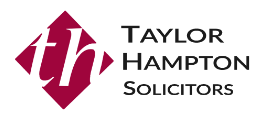Global Law Experts top search results to tackle law in Privacy & Media: Tailored solutions for every legal challenge. Let experienced lawyers guide you through legal disputes and challenges with law insights and expertise knowledge. Our members hold proven strategies and solutions for every complex legal need.

Since 2010, the Global Law Experts annual awards have been celebrating excellence, innovation and performance across the legal communities from around the world.


No results available Reset filters?
Privacy & Media Legal Practice focuses on protecting individuals’ rights related to personal information and reputation in the context of media and communications. It covers issues such as unauthorized use of private data, defamatory statements, intrusion into private life, and the legal boundaries for journalists and media outlets. Lawyers in this field handle cases involving data breaches, protection against paparazzi or invasive reporting, and consent requirements for publishing images or personal information. This practice balances freedom of expression with privacy rights, ensuring that individuals are safeguarded from unlawful exposure or harm caused by media activities. With evolving technology, it also involves digital privacy concerns like social media and online defamation, reflecting the complexity of modern communication.
Privacy law shields individuals by setting limits on how the media can gather and publish personal information. It prohibits tactics like trespass, harassment, or recording without consent. These laws prevent media from excessively invading private spaces or revealing intimate details that could cause harm or distress. By enforcing these protections, individuals have legal recourse if their privacy is breached through unlawful media conduct, ensuring respect for personal boundaries while balancing media freedom.
Individuals can seek legal remedies such as injunctions to prevent publication, claims for damages, or corrections when the media violates privacy rights. These rights protect them from unauthorized exposure of sensitive information, defamatory content, or intrusive reporting methods. Laws vary by jurisdiction but generally empower individuals to hold media accountable for harms arising from breaches of confidentiality, harassment, or misuse of personal data in publications.
Yes, but only under specific conditions. Media may publish private information if it is in the public interest, obtained lawfully, and does not unjustly harm the individual’s privacy rights. Consent from the affected party or a lack of a reasonable expectation of privacy can also justify publication. However, unauthorized disclosure of intimate details without a legitimate reason may lead to legal action against the media outlet for invasion of privacy.
Media reporting is constrained by laws that protect individuals from defamation, false light, or revealing private facts without consent. Reporting must balance public interest against personal privacy, avoiding sensationalism or unjustified disclosures. It cannot include harassment, stalking, or the use of illegal means to obtain information. These limits maintain ethical journalism while respecting individuals’ dignity and legal rights.
Yes, legal standards require explicit and informed consent from individuals before the media can use or publish private images or videos. Consent must be voluntary and cover the specific use of the material. Without it, a media outlet risks violating privacy laws. In certain cases, such as public events or newsworthy subjects, consent requirements may differ, but the default remains protection of personal privacy.
Privacy rights in journalism and media are governed by a mix of statutory laws, common law principles, and regulations like data protection acts, defamation statutes, and broadcast codes of conduct. These legal frameworks set the boundaries for gathering, reporting, and publishing information while protecting personal privacy, reputation, and dignity. International human rights instruments also influence these laws, ensuring a balance between freedom of expression and privacy.
Global Law Experts is dedicated to providing exceptional legal services to clients around the world. With a vast network of highly skilled and experienced lawyers, we are committed to delivering innovative and tailored solutions to meet the diverse needs of our clients in various jurisdictions.

Send welcome message